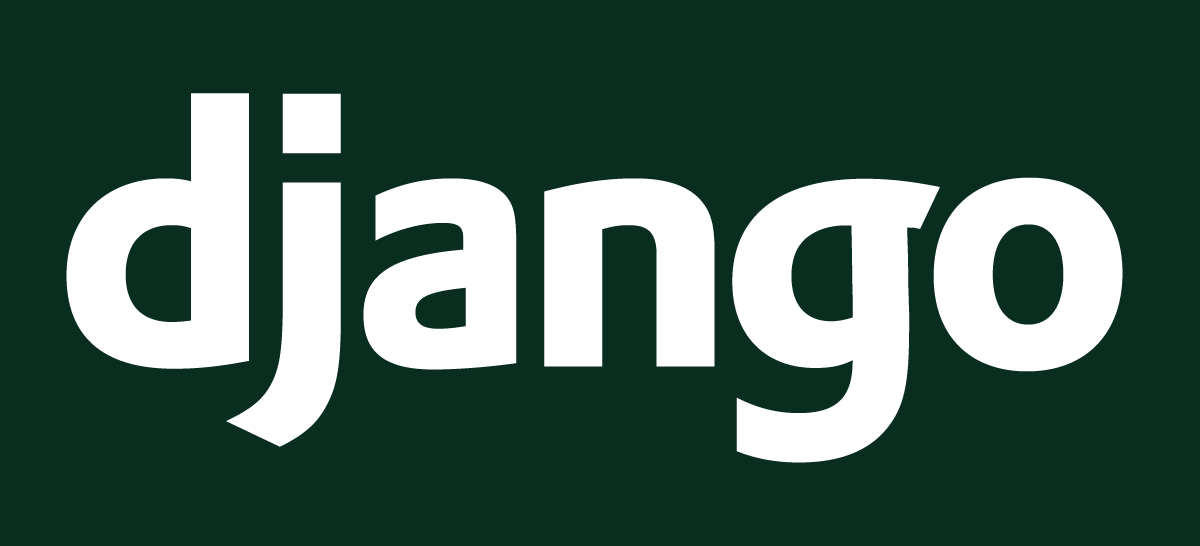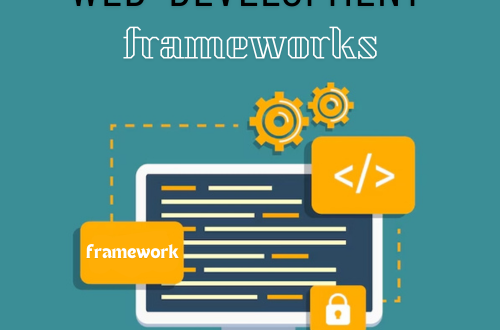Considering the fast-paced environment of web development, it is vital for web developers to incorporate the newest frameworks to ensure that they can develop top-notch, efficient, and scalable web applications and sites. When progressing further in the year 2024, new trends in web development frameworks are being developed with the help of end-users or advanced tools, which are used gradually to develop advanced web applications. New approaches implemented in the frameworks this year are a combination of familiar and fresh ideas that will bring value to every developer due to the uniqueness of their abilities.
Based on the current trends seen in development in the year 2024, the most prominent web development frameworks help to ease development processes, improve the performance, and give the users better experiences. Whether you are into front-end, back-end, or full stack, gaining essential outline of these frameworks is imperative. This post will look at some of the most popular web development frameworks you should be aware of in the year 2024, the basic features of each, the advantages and disadvantages of using each and what type of project they are best suited to. Starting from the flexibility of creating interfaces in React and Angular and ending with the incredible back-end capabilities of Node. As for web development frameworks of this kind similar to js and Django, these frameworks are going to set trends of the future.
What is Web Development Frameworks?

Frameworks for web development exist as core assets that offer a firm structure of the creation process of web applications. They provide a means of structure in creation and arrangement of code hence enabling matters of development to be well handled. They are the pre-existing packages that consist of codes and patterns which makes the creation of application easier by providing solution to routine problem, like routing, database management, session management, and authentication. Thus, leaving no doubt that using a framework, developers can avoid solving problems that have already been solved by someone else, as well as they can use only this framework for the main, essential functionalities of the application, not spending time on improving well-known facets. Some of them are: Front-end frameworks: React, Angular, and Vue. Javascript is utilized for richer interface design; Node is used for back-end development. js, Django, and Ruby on Rails, that help with the general optimization of server-side task and database utilization. Total environments, and full stack frameworks including Next. JS and Laravel: both the front as well as the backside solutions for web development are involved in it. Taking all things into consideration, web development frameworks enhance productivity, the quality of codes developed, and scalability in web development, thus making them a necessity for web development today.
What are the Uses of Web Development Frameworks?

Web development frameworks are major tools since they enable organization of the development and use of web applications. It offers frameworks, libraries and utilities that come with ready made features that work and are used for basic building of applications including the routing and database access and authentication. Through these frameworks, the developer can efficiently leave ordinary features for commonly used applications for the framework instead of coding to enhance this process, which takes a lot of time. In the same way, frameworks ensure that there is proper coding standard and coding best practice is observed; thereby, producing an enhanced, steady and easily scalable code. Some of them also provide embedded protection against different sorts of attacks, which makes web applications more secure. Frameworks provide tools to improve performance optimization;they aid in creating applications that can run efficiently and quickly. This is coupled with built-in testing and debug functionalities to allow for clean code. Moreover, frameworks provide the scalability feature that facilitates application growth as well as catering for enhanced user traffic. In summary, Web development frameworks work towards increasing efficiency, consistency, and also quality, and are therefore, valuable assets in the current Web development.
Benefits of Web Development Frameworks

1. Increased Development Speed: Frameworks contain various features that have been implemented as a whole and are tested, and it helps in reducing the considerable amount of tim eingEEDED equired for creating web applications. This lays the foundation for developers to execute creative solutions in areas that are not possible in the conventional reusable libraries.
2. Enhanced Security: Some of the frameworks have an inbuilt security component where security flaws like SQL injection, cross-sites scripting, cross-site forgery request, etc. , are prevented. This reduces the likelihood of compromising security of the web application and make the overall security of the web application more secure.
3. Code Maintainability and Organization: Frameworks make coding the use of beneficial structures, and these include architectures such as Model-View-Controller (MVC). This leads to better organization of files, easier making changes to the code and it can be easily extended to accommodate other developers.
4. Improved Performance: Web development frameworks consist of tools and recommendations on performance enhancement solutions, including efficient execution of SQL queries and involving caching and comprehensive asset management. These features aid in developing fast and responsive web applications to ensure that there is a proper handling of loads of users when necessary.
5. Community and Ecosystem Support: Popular frameworks are developed with large and strong community that share knowledge and support a vast number of articles, lessons, plug-ins and other extensions. This helps developers in troubleshooting or learning the best practice in developing applications with this framework and also in applying enhancements that will suit the project at hand.
What Are the Best Web Development Frameworks to Learn in 2024?
Front-End Frameworks

1. React. js
Description: Open source and maintained by Facebook, React. js is rather a rich application used to create UI interfaces and SPA projects. It includes the use of components, and a virtual DOM for efficient rendering.
Why Learn: Applied at large in the industry, favoured by most of the people in the community and provide more employment opportunities.
2. Angular
Description: Angular is volumetric JavaScript framework used for designing front end applications, it was developed by Google. It is written in TypeScript and has a comprehensive list of tools for development for its applications.
Why Learn: Is just a set of tools with all the essential amenities required for a stable application development environment.
3. Vue. js
Description: Vue. js is a progressive library for construing user interfaces. It should be noted that it is an incremental framework which means that it is designed to be taken in deterministic pieces and can serve as a library as well as a full-fledged framework.
Why Learn: It is easy to incorporate into various applications, can be used in numerous contexts, and has increased usage.
Back-End Frameworks
4. Node. js/Express. js
Description: Node. js is a runtime environment where JavaScript can be implemented for server-side programs, on the other hand, Express is an application framework for Node. js, which functions like a web application framework. Js is a modern Node. js framework that is easy to understand and highly adaptable. js web application framework.
Why Learn: High speed, capability for asynchrony and availability of a great number of libraries.
5. Django

Description: Django is the flexible and fun high-level Python Web framework for aggregating the best of the best web development patterns into a simple and intuitive framework.
Why Learn: Ideal for designing enterprises solutions for Internet applications that are fast, protected, and coded following the best practices.
6. Ruby on Rails
Description: Rails is an open-source server-side web application framework compatible with Ruby built under the MIT License. This is a pattern which separates the application into three areas of concern: model, view and controller or commonly known as model-view-controller (MVC) pattern.
Why Learn: Tends to favor compiled over configurations the more so as it is best suited for quick creation of programs.
Full-Stack Frameworks
7. Next. js

Description: Next. js is developed based on React for creating web applications and websites. js is a perfect choice for server-rendered or statically generated websites built with the help of React.
Why Learn: Perfect for creating Search Engine ground-up friendly as well as highly optimized internet applications.
8. Nuxt. js
Description: Based on Vue. js, Nuxt. It is about js as a framework for creating the universal Vue. js applications. It hides intricate, necessary details of server and client code from any view.
Why Learn: It helps in the simplification of processes involved in the creation of SSR Vue applications.
9. Laravel
Description: Laravel is one of the PHP Frameworks that aims at developing web applications with the model – view – controller architectural pattern.
Why Learn: Very rich set of features, say, compared to its closest competitor Matplotlib, it has many more features, it has a great documentation with books written in a very attractive way, and it has a large and active community.
10. SvelteKit

Description: SvelteKit is a framework developed for creating sites and applications with the Svelte library. It provides the modern development approach of building applications and produces high-performance forms of apps.
Why Learn: Reactive modes of operation, effective mutation of elements, no virtual DOM, and constantly developing framework.
Why These Frameworks?
Industry Demand: They are ultimately recognized in the industry and guarantee the availability of numerous options for employment.
Community Support: This is a well-supported language for many years now, a huge community implies vast amount of tutorials, examples, and additional plugin libraries availability.
Performance and Scalability: All of these frameworks are aimed at building high-performance, highly-scaled web applications.
Future of Web Development Frameworks?

Web development frameworks that are currently in existence contain so much promise as well as opportunities for advancing development efficiency, improving user experience and further integrating with new technologies. Frameworks will remain a forward focus as they progress towards performance enhancement and developers’ efficiency, by utilizing such inclusive components like SSR and SSG. The emergence of contexts like Next. Damus and SvelteKit align with this trend, with a small amount of overhead and extended load time. Furthermore, we are likely to see a rise in the deployment of artificial intelligence and machine learning features that will allow better creation of smarter web applications that can be personalized by the user. The increasing use of WebAssembly (Wasm) is expected to take shape, with WebAssembly enabling developers to write not only in JavaScript but in a host of other languages. In addition, frameworks will further shift their attention to security and scalability to adequately cater for large–scale intricate applications. This means that even while low-code and no-code platforms are getting popular, the traditional frameworks are themselves evolving in order to incorporate these paradigms, consequently bringing web development into the reach of a wider public.
Adlivetech website design services create a perfect blend of design aspects for its clients to design a masterpiece that can convey a brand message and curve a strong digital presence of the business.
DM us for any query and quick help.
Email: info@adlivetech.com
Whatsapp: Link
